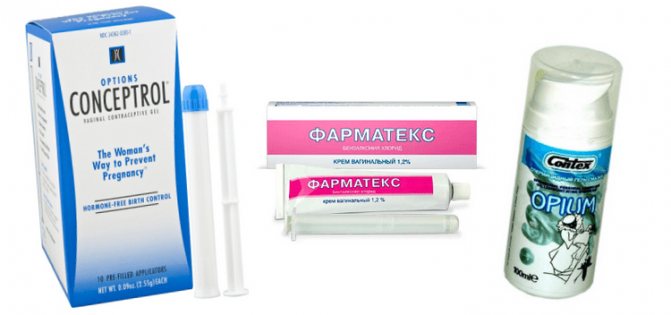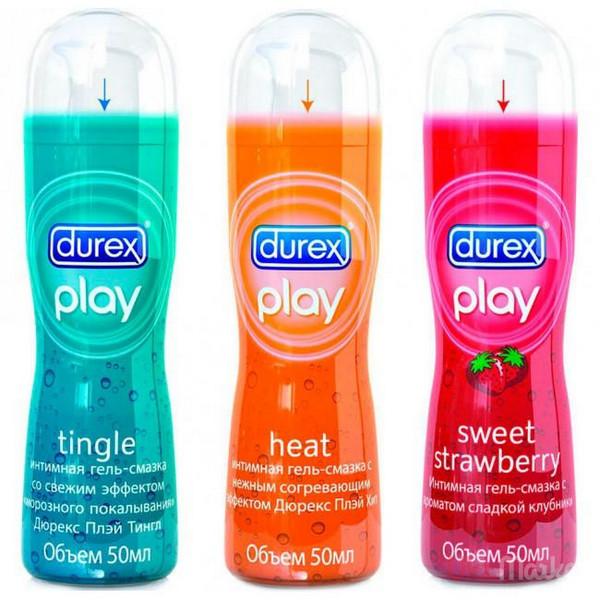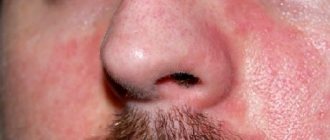There are patients who suffer from discomfort during urination for half their lives. The cause of this discomfort can be anything. Some people believe that cystitis from Durex lubricant is quite likely. Is it really? Let's figure it out.
As you know, the bladder and vagina are located in such a way that they are in close contact in a woman’s body. Problems in one organ cause problems for the “neighbor”. Sometimes the symptoms are confusing and the woman thinks that she has cystitis. In fact, the bladder is not to blame, but you need to look for the cause at the gynecologist.
Below we will look at several pathologies whose clinical picture is similar to cystitis.
Types of lubricants depending on the effect produced
In order for the condom to slide, it is treated with a special product - gel.
Thanks to this substance, the penis glides better into the vagina. This property is especially important if a woman produces little of her own lubricant. In addition, for those who like unprotected sexual intercourse, they have come up with lubricants that are sold separately. Unfortunately, it happens that many women experience unpleasant sensations that they initially mistake for cystitis. This is possible with Durex lubricant if you are allergic to the substances that it contains.
Currently, there are several types of lubricants.
Types of lubricants
The quality of sex suffers due to a lack of arousal or natural lubrication, ejaculation too quickly or low sensitivity of the head of the penis. All these problems can be solved with the help of intimate lubricants.
Spermicidal
Spermicidal lubricants provide additional insurance against unwanted pregnancy. The active components (nonoxynol, octoxynol, benzalkonium chloride) destroy spermatozoa and also have a bactericidal effect. However, many manufacturers position such products as auxiliary methods of protection in addition to the main ones (condoms).
Popular spermicidal lubricants:
- Gel "Conceptrol" (320 RUR);
- Farmatex cream with lavender oil (345 RUR). It is considered the most effective (active substance – benzalkonium chloride);
- Gel Contex Opium (RUR 308).

Lubricants are introduced into the vagina using a special dispenser 5-10 minutes before sex. With frequent use, the risk of imbalance of intimate microflora and the development of allergies increases.
Contraindications:
- Progressive erosive lesions of the vagina and cervix.
- Venereal diseases.
- Candidiasis.
Exciting
Exciting lubricants provide comfortable sexual intercourse in cases where one of the partners is not in the appropriate mood or lacks natural hydration. For men, such products help improve erection. Exciting lubricants contain substances that stimulate blood circulation and increase the sensitivity of the nerve receptors of the genital organs.
Using ribbed condoms.
Currently, manufacturers produce many types of condoms to achieve different sensations during sex. However, the use, for example, of condoms with a modified structure ( with pimples, stripes, etc.)
) can cause irritation of the vaginal mucosa in a woman and lead to unpleasant sensations during sexual intercourse.
The twenty-first century is an era of achievements. One of them is birth control; the possibility of its implementation allows couples to start a life together without worrying about an unplanned pregnancy, gives time to prepare for the arrival of a child in the family, and prevents conception if childbirth is dangerous for the fragile health of the woman. Many people prefer condoms; they are convenient, do not require complex medical procedures, and, moreover, provide a high level of protection against sexually transmitted infections. Manufacturers offer many options, and doctors insist on using barrier agents to reduce the risk of transmission of HIV (human immunodeficiency virus), gonorrhea and chlamydia. However, not all people tolerate contact with contraceptive accessories and sometimes develop an allergy to condoms, characterized by damage to the mucous membranes and skin in the contact area and beyond. It causes a lot of inconvenience to the patient, so you should have an idea of how to deal with pathological manifestations and whether they can be avoided.
Symptoms
Allergy to contraceptives and lubricants, like any other, has characteristic symptoms that do not always appear in a characteristic area.
Common symptoms of a reaction to grease and latex:
- Swelling of the lips and tongue. A very dangerous symptom, if treatment is not taken, it can be fatal;
- Tachycardia.
- Epidermis. Often a small rash appears on the hands, accompanied by itching. Hives and eczema also occur;
- Rhinitis or rhinorrhea.
- Respiratory system: difficulty breathing, and in a complicated state – bronchospasm.
- Gastrointestinal tract. In addition to discomfort and painful spasms, there may be diarrhea and stool upset.
- Tearing.
- Anaphylactic shock.
Now specifically about intimate symptoms.
In men
If you experience the following symptoms after sexual intercourse using a condom, you should seek help from a qualified professional:
- Inflammatory process.
- Hyperemia of the genital organ.
- Manifestation of irritation.
If you feel such discomfort, you should seek help from an allergist and urologist.
Among women
In the weaker sex, the symptoms are more irritating and severe:
- Hyperemia of the labia.
- Internal burning, in some cases itching.
- Manifestation of swelling in the genital area.
- Thrush.
If you notice any discomfort or irritation, you should contact a specialist for advice and undergo a series of tests to identify the allergen. The main thing is not to hide the problem from your partner and find an alternative protection for sexual intercourse, which will eliminate discomfort, as well as further complication of symptoms.
How does the reaction manifest itself?
How an allergy to condoms manifests itself depends on the consistency of the pathogenic substances in them. The reaction to the stimulus occurs from several hours to several days. Signs and symptoms of an allergy to condoms can be seen on the genitals, as well as in the oral cavity, if a person practices unconventional sex.
General symptoms
Partners may experience the same signs of the disease:
- hives;
- itching on the skin;
- swelling in the face and mucous membranes;
- cough;
- difficulty breathing;
Specific signs also appear in girls and men.
Signs in men
The stronger sex may feel inflammation of the genital organ after contact with an allergen. Balanoposthitis develops on the head of the penis and on the foreskin.
Often a man feels discomfort when wearing underwear and defecating. Spots, nodules or blisters appear on the genitals. Sometimes a narrowing of the foreskin develops. Due to phimosis, the head of the genital organ is practically invisible during erection.
Perhaps the development of allergic urethritis, in which discharge from the urinary tract is noticeable.
A severe allergic reaction can cause irritation in the perineum, scrotum and thighs.
Manifestations in women
If a girl is allergic to condoms, she develops vulvovaginitis. It is accompanied by damage to the vaginal mucosa and labia. Allergy to lubricant in women manifests itself as follows:
- burning;
- cheesy discharge;
- discomfort when wearing underwear;
- swelling and redness of the labia;
- erosion and blisters occur;
Even “advanced” allergies can be cured at home. Just remember to drink once a day.
A girl with hypersensitivity to contraceptives may notice moderate pain and burning after urination. An allergic reaction occurs along with candidiasis.
The symptoms listed above may also indicate that the patient is developing cystitis. Then the doctor’s task becomes to differentiate the inflammatory process in the form of cystitis. It is also important to distinguish irritation from an allergic reaction to a contraceptive. Treatment in both cases is different.
By location of application
Before use, read the insert, which describes in detail how to apply the gel lubricant to the penis, anus or vagina. Some compounds are applied only to the condom and never under it. At the end of intimacy, the lubricant is washed off with warm water and soap.
Gel lubricants have no side effects, except in cases of allergy to any component of their composition. Taking some precautions will help you avoid trouble:
- do not use expired products;
- do not treat skin or mucous membranes with microtraumas;
- Do not buy a composition whose packaging integrity is damaged.
And, of course, do not take lubricants internally.
There are special lubricants for oral, anal and vaginal sex. They all have their own compositional characteristics:
- Vaginal. They can be of different consistencies, with additives or neutral composition. There are lubricants for narrowing the vagina, the effect of which is due to local tissue swelling (“You and Me” No. 10).
- Anal (Contex strong at a price of 490 rubles per 100 ml). They have a thick consistency, greatly facilitate sliding, deodorize, and disinfect. Having anal sex without a condom is dangerous - there are a lot of aggressive bacteria in the intestines that provoke prostatitis. It is not recommended to use lubricants with an analgesic effect - serious ruptures of the mucous membranes can occur.
- Oral. Applied to the penis, it has a pleasant taste and aroma. As a homemade analogue, you can use whipped cream, chocolate, and mint.

For optimal effect, lubricants should be used as directed.
Causes
What provokes an allergic reaction to condoms and intimate lubricants? First, you should know that women often react specifically to latex. If, after detecting symptoms, you exclude latex products from use, you can accurately determine the source of the fire.
The most basic irritants and their components:
- Latex. The most irritating component is latex protein;
- Aromatic components;
- Lubricant.
- Alcohols are included in lubricants, for example, acetate;
- Stimulants - menthol, are often found in gels for intimate use.
- Warming agents - propylene glycol.
- Spermicides – nonoxynol-9.
- Silicone is the main component of many intimate gels and lubricants;
- Petrolatum. It is used as the basis for the composition of oil-based lubricants.
- Carrageenan is a component of water-based lubricants.
After detecting allergy symptoms and receiving results that identify the body's pathogens for the reaction, you should carefully consider the choice of lubricant and condom.
Can you be allergic to condoms?
IT IS IMPORTANT TO KNOW! A remedy for complete relief from allergies, which is recommended by doctors Read more >>>
An unpleasant reaction is rare, but still occurs. The problem of girls and men is delicate and unpleasant, but it can be eliminated with the help of adequately selected therapy. If allergic reactions occur, sometimes it is enough to replace condoms from other manufacturers, which have lubricants on a different basis.
Overview of manufacturers and composition features
All manufacturers in this review are worthy of attention.
The company creates high-quality products, and this could not be reflected in the price.
The product is durable and thin, manufactured in accordance with all quality standards.
It should be noted that each manufacturer has its own technology, and which condom is suitable for an allergy sufferer must be tested.
Possible allergens
The most basic component of a condom is latex. It is the elements included in it that cause a negative reaction in the body. Natural substance of plant origin consists of:
It is worth noting that latex is used in the manufacture of gloves and pacifiers. It is a durable and reliable material, but can still cause irritation.
In addition to the main material, the following components of the condom can also cause irritation from the condom:
- dyes,
- flavorings,
- spermicidal lubricant.
The most allergenic substance is the lubricant - nonoxynol.
Why there is itching and irritation from a condom - reasons
Is there an allergy to condoms? Medical studies have revealed that increased sensitivity to contraceptives is also due to a genetic factor. Sensitization is inherited. Perhaps one of the relatives also suffered from the disease, but not everyone will talk about such a delicate problem.
It is also possible to develop an allergy to a condom if close relatives have had a food-related form of pathology. As a result of gene transfer, the patient may develop the same form of allergy or a different one.
An allergic reaction to condoms also occurs against the background of existing sensitization. In most cases, allergies to contraceptives occur due to a history of reactions.
Difference between male and female contraceptives
Male condoms are made from latex. And contraceptives for girls do not involve the use of this material.
By base type
Lubricants are made on an oil, water and silicone basis. There are also combined formulations.
Oily
Oily ones are considered the most natural, usually available in cream form. The composition includes natural oils: rapeseed, coconut, shea, cocoa. Vitamin E is added for additional hydration and tissue regeneration.
Advantages:
- Long lasting sliding effect.
- No preservatives.
- Can be used in water together with erotic toys, except those made of latex and porous materials. Does not require rinsing off the body.
Oil lubricants are used only with polyurethane condoms; latex ones are destroyed (dissolved by fats). In the heat, the consistency of such a lubricant can become too liquid, and in the cold it can become dense.
High-quality oil lubricants do not contain:
- Mineral oil;
- Paraffin;
- Glycerol;
- Mineral oil;
- Fragrances;
- Petrolatum.
The above components can irritate the mucous membranes, provoke candidiasis, itching, and allergies. An example of a good oil-based lubricant is Yoska 2 in 1 (767 RUR for 75 ml).
Silicone
The main components of silicone lubricants are silicone oil and thickeners (2-3 components without preservatives). Such lubricants are universal, suitable for use in the shower or bath, and are non-toxic. It cannot be used with toys made of silicone or cyberskin, since during the reaction the pores of the material will gradually expand and become clogged with bacteria.
Another disadvantage is that it is difficult to wash off from the body. They are not suitable for oral sex - they clump, taste bitter, and are not digested by the stomach. And for massage and manual exercises, silicone lubricants are the best option. Additional advantages: they do not stain underwear, do not cause inflammation of the urethra, and never dry out completely.
Examples of funds:
- Silicone Based Lube from Swiss Navy (RUR 1,184 for 59 ml).
- Toro from Shunga (RUR 1,240 for 165 ml).
- Basic Silicone from Pjur (RUR 1,300 for 100 ml).
There are hybrid lubricants based on water-silicone and water-oil:
- Classic Hybrid from System JO (RUR 1,300 for 120 ml);
- UNI-S from Efele (RUR 324 for 405 ml);
- Hybrid warming from JO with a mixture of water and coconut oil (933 RUR for 30 ml).
Water
For regular use (for medical reasons), you should choose lubricants that do not contain glycerin, sugar, propylene glycol, parabens, or fragrances.
Popular hypoallergenic lubricants based on natural ingredients:
- Yoska (95 RUR for 7 ml). Ingredients: water, guar gum, chamomile extract, aloe vera and flax seed, xanthan gum.
- Gel lubricant with a warming effect Yes (RUR 208 for 50 ml). Ingredients: guar gum, flax seeds, beeswax.
Read more about water-based lubricants from:
- Higher Nature from Arkopharma Phyto (430 RUR for 30 ml). Ingredients: aloe and green tea extract, guar gum.
- “Lubrimax sensitive” (232 rubles for 75 ml). Ingredients: water, panthenol, lactic acid.
- All Natural Water Base Lubricant from Swiss Navy (RUR 542 for 30 ml).
A wide selection of relatively cheap natural-based lubricants is produced under the Russian brand HASIKO (“Hasiko”). Edible lubricants are also produced on a water basis, for example Cotton Candy from JO (RUR 1,100 for 60 ml).
Treatment and what to do
After visiting an allergist or urologist/gynecologist, you will receive directions for the required tests. Based on their results, therapy will be prescribed; in severe cases, hospitalization cannot be avoided.
First of all, it is necessary to exclude the stimulus from the field of influence. For example, in case of an allergy to silicone, it is worth replacing the intimate gel containing it with an oil lubricant. If you are allergic to latex, use polyurethane condoms. In this way, you avoid unnecessary irritation with all the ensuing consequences, but continue to use a contraceptive and a moisturizer.
Therapy includes:
- Antiallergic drugs. First of all, the doctor will prescribe a course of medication: Desloratadine, Levocetirizine or Ebastine. With their help, you can relieve the first symptoms of allergies, or, one might say, stop them.
- Anti-inflammatory creams and gels. To eliminate the reaction on the epidermis of the genital area, the following drugs are often prescribed: Sinaflan, Sudocrem, Fenistil-gel or Zinc ointment.
- Antihistamines. Indispensable assistants in removing allergenic substances and stopping progression.
- Antifungal medications. These include: Pimafucin, Terzhinan, Livarol.
- For women - suppositories that normalize the vaginal microflora. Often doctors prescribe: Vagilac and Lactobacterin.
- Corticosteroids. Such hormonal ointments are prescribed exclusively by a doctor and only in case of severe symptoms, when local medications are powerless. It is strictly prohibited to take drugs of this class without justification by a doctor. They have a lot of contraindications and side effects;
- Herbal baths. Often among the doctor’s recommendations there is a method of control that will relieve the following symptoms: burning, itching and swelling. Also, these herbal teas also have a disinfecting effect.
By adhering to all the advice of doctors, you are guaranteed to quickly resolve all issues with the disease. It is also worth noting that by purchasing cheap condoms, you expose your body to a more frequent reaction due to the harmful components they contain.
An allergic reaction is far from a serious ailment, so it is worth taking the course of therapy with all responsibility. All prescribed medications should be taken only as prescribed by the doctor. After completing therapy, you should find out the drug with which you can stop the reaction.
Allergy to various components of condoms
The manifestation of reactions can be determined by the following parameters:
- Composition of protective products;
- Lubrication;
- Some additional components;
- Flavors;
- The most common cause of allergies is latex.
Among the components of condom processing, a popular allergen is the spermicide nonoxynol-9.
Reaction to latex
Determining this can be problematic because the reaction may not appear immediately.
Characteristic symptoms:
Reaction to chemical components, to polyurethane
It appears in the same way as with latex. Although the symptoms may manifest differently in all cases. They often appear later, go away on their own if there is no contact with the allergen for some time, and are repeated in the future when using the same products.
The easiest way to determine which particular component of the condom caused the allergy is to visit two doctors - an allergist, as well as a urologist or gynecologist, depending on your gender . As a result of undergoing certain examination methods, in particular, blood tests and skin samples, it will be clear what the reason is.
There is an option to determine it through trial and error:
- If you notice signs of an allergy to latex condoms, try polyurethane ones;
- If the products you used contained nonoxynol-9, buy condoms that are not treated with it;
- Try unscented products.
intimate lubricant
Many popular lubricants (for example, “Masculan ultra-glide”, Durex play feel) contain substances that pose a potential danger to the mucous membranes of intimate areas and the microflora inhabiting them:
- Glycerin – increases the risk of developing candidiasis. At high concentrations it can damage mucous membranes. When dry it gives a sticky effect on the skin.
- Parabens are similar to estrogen hormones in their effects on the body. May cause allergies and irritation.
- Components of petroleum origin (mineral oils, paraffin). They have a sealant effect, disrupt skin functions in terms of producing natural lubrication, and can deform latex.
- Sugar is a common component of aromatic lubricants. It is food for fungal infections.
- Phenoxyethanol is a moderately hazardous chemical preservative. In high concentrations it can have a negative effect on the reproductive system.
- Propylene glycol is a substance prohibited by many certification systems. May cause burning, pain, allergies.
- Synthetic fragrances (designated as Parfum, Fragrance) are the most irritating components of lubricants. They contain phthalates, which can lead to hormonal imbalances in men.
- Alcohol, chlorhexidine - cause irritation and dryness of mucous membranes.
For long-term sex or anal penetration, it is better to choose silicone-based lubricants. Oily ones are good for the skin and mucous membranes, but are not popular due to the fact that they leave indelible stains on the laundry. Water-based lubricants are universal, but they must be added periodically (more lubrication will be required).
People's rating of lubricants (based on reviews on forums):
- “Contex wave” moisturizing with panthenol (RUB 161 for 30 ml);
- “Gynocomfort” with panthenol, hyaluronic acid, vitamin E (360 rubles for 50 ml);
- Lubricants from PJUR;
- Gel "Montavit" (168 rubles for 50 ml).
Trusted manufacturers: Shunga (Canada), PJUR (Germany), Swiss Navy (USA), JO (USA). Many people like Durex and Contex lubricants, and the popular Vizit brand has received quite a lot of complaints on the forums.
Good sex is only possible in the right environment. If there is insufficient hydration, helpers are needed - lubricants, special gels, which also help with erection problems, excite, warm, prolong sexual intercourse. Flavorings add piquancy, medicinal components provide contraceptive, bactericidal, healing and other effects.
The female vagina has a fragile microflora that creates a certain level of acidity or pH. Big trouble awaits those who are ready to replace the gel with Vaseline or olive oil, which sometimes provokes thrush and causes inflammation.
The main function of such products is moisturizing. Common causes of vaginal dryness include:
- problems with arousal;
- physiological characteristics of a particular person;
- hormonal imbalance;
- taking antidepressants, antimicrobials, oral contraceptives;
- stress;
- high salt content in the diet, as well as caffeine;
- smoking, alcohol;
- breast implants;
- condition after childbirth, gynecological operations.
Low estrogen levels, characteristic of menopause, also contribute to vaginal dryness.
Gel lubricants can be antiseptic, stimulating, and have various aromas, which improve the quality of sexual life. In addition, they:
- eliminate dryness in the genitals, prevent their wear;
- prevent the development of infectious diseases;
- increase the effectiveness of contraceptives;
- prolong sexual intercourse.
Water
Intimate gels with a water base are considered the most versatile and practical. In terms of physical and chemical properties, they are close to natural lubricants. They do not leave marks, but they dry quickly and require reapplication during sexual intercourse, which makes them very inconvenient. Good for parts of the body heavily covered with hair.
Compatible with all types of sex toys, regardless of the material of manufacture. They are inexpensive and sold in supermarkets. Not suitable for sex in water as they wash off easily. In addition, they do not damage the latex of the condom, do not upset the balance of vaginal microflora, and are hypoallergenic, taking into account individual sensitivity.
Oily
Appeared first on the market. They have a thicker consistency. Condoms and latex toys are damaged. Sticky, difficult to wash and wash.
Silicone
Modern versions include silicone products. They are ideal for any type of penetration and are successfully used in the aquatic environment of a swimming pool or shower. They are economical to use, do not dry out for a long time, and provide easy glide during manual caresses. Among the disadvantages: incompatibility with toys made of the same silicone or cyberskin, as well as difficulty in removing from the body. The price of silicone intimate lubricant at the pharmacy is higher than that of other products.
There are other classifications of gels depending on the additives included:
- With oak extract to narrow the vaginal opening. Relevant for women who have recently given birth.
- Increasing blood supply to the penis and its size.
- With pepper and cinnamon to enhance sensitivity.
- Prolongators with a cooling effect for prolonged coitus.
- Stimulating with aphrodisiacs for those who have problems with libido.
- Antiseptic, reduce the risk of infection, but do not exclude this possibility;
- Scented with fruity scents and flavors to create a romantic mood. Not recommended for allergy sufferers.
- Medicinal, intended for those with sensitive skin.
- Contraceptive with spermicidal and antibacterial components.
- Anal ones contain lidocaine or benzocaine for pain relief as well as relaxation. Their increased thickness ensures sliding in places not intended for friction.
Lubricants are used during pregnancy. The main thing is to get the approval of a gynecologist the day before and advice on which intimate lubricant to choose so that it does not contain fragrances and other chemical components.
After using the gel, hygiene procedures are indicated to avoid disturbing the acidity of the mucous membrane and activating opportunistic microflora.
Lubricant can cause harm, but only if used incorrectly. Therefore, before you buy the composition, you must carefully study the instructions for its use. At the first sign of irritation or allergy, visit a doctor.
How to choose

In order for an intimate gel to bring comfort and pleasure to your sexual life, you should follow a number of rules, among which the most important are:
- Pay attention to the pH of the product. Its optimal level is 4.5-5.5.
- When purchasing quality lubricants, check the expiration date and composition.
- Choose an experienced manufacturer with a good reputation.
Pay attention to the following auxiliary components:
- Lidocaine, which reduces the pain threshold and prolongs sexual intercourse.
- Chlorhexidine is a bactericidal compound that destroys not only harmful but also beneficial microbes.
- Capsaicin is a substance found in chili peppers for those who like “hot things”. Individual intolerance to this ingredient is possible. The risk of “overdoing it” is high even among those who normally tolerate thrills.
It is better to purchase a sample sample, test it, and then decide on the advisability of regular use.
How to avoid a reaction - useful tips
At the first reaction, the doctor may prescribe antihistamines even before the examination. If a relapse of the disease occurs, a second consultation with a doctor and the prescription of other medications is necessary.
- Don't buy products that are too cheap. They may contain harmful chemical components and the risk of allergic reactions increases.
- After using a condom and sexual intercourse in general, it is necessary to carry out hygienic procedures.
- If there is another type of allergy, antihistamines should always be present, as the reaction may be unpredictable.
To effectively treat allergies, our readers successfully use a new effective allergy remedy . It contains a unique patented formula that is extremely effective in the treatment of allergic diseases. This is one of the most effective means to date.
If an allergen is identified and it turns out to be latex, you should eliminate it from everyday use. Not many people know that this substance is found in many products, including those that we come across every day. To prevent relapse, always read the ingredients of the item.
Although... In very rare cases, such an annoying phenomenon as an allergy to condoms occurs. Yes, yes, this is a real medical problem, and not an ordinary excuse, as so many people think. However, fortunately, this type of allergy does not occur very often - in approximately 5% of sexually active adults. Symptoms of such allergies, treatment, preventive measures - this is what will be discussed in this article.
Causes of allergies
Doctors know very well what allergies are. But why it develops in one person but bypasses another is still a big mystery. And an allergic reaction to condoms was no exception. However, doctors still identify two risk groups, which include people who are most likely to develop an allergic reaction to condoms.
- Genetic predisposition
Of course, you should not rush to ask your parents if they were allergic to condoms - after all, the topic is very sensitive. However, even an allergy to strawberries in your relatives may indicate that you, too, have, if not an allergy to certain substances, then certainly a predisposition to it. This means that it is possible that in your case, for the first time, an allergic reaction may occur precisely to a condom.
- Already existing allergies
Well, if you know firsthand about allergies to dust, dogs or chocolate, you shouldn’t be too surprised if condoms are added to the list of allergens. By the way, in more than 70% of all cases of allergic reactions to condoms, people previously suffered from allergies to other substances.
Symptoms of an allergic reaction
An allergic reaction to condoms is very difficult to miss, but remember that the symptoms can be very different. And exactly which ones will arise in a particular case depends only on the individual characteristics of the organism. So, you should pay attention to such phenomena as:
- Discomfort in the genital area
In most cases, an allergy to condoms first makes itself felt by itching and burning in the genital area. In addition, if the allergic reaction is very severe, redness and even swelling of the genitals cannot be ruled out. This is especially common in women.
- Skin rashes
There are often cases when an allergic reaction to a condom manifests itself in skin rashes - in other words, hives. The degree of severity can be very different - it all depends on the severity of the allergic reaction.
- Runny nose and watery eyes
Nasal congestion or, on the contrary, strong discharge, redness and itching of the eyes, watery eyes - this is how the body can also make it clear that it is allergic to condoms. In most cases, these symptoms are also accompanied by skin rashes.
- Lung problems
In particularly severe cases, allergies can manifest themselves as problems with the lungs - in particular, coughing, wheezing in the lungs, or even worse - difficulty breathing. In this case, you should not hesitate in any case - seek medical help as soon as possible. Fortunately, this happens extremely rarely - in about 1% of all cases.
Please note that symptoms of an allergy to condoms very rarely appear after the first use. As a rule, an allergic reaction makes itself felt after the second or third use of a condom, several hours after sexual intercourse - the body needs some time.
What to do?
If you think you may have an allergy to a condom, see your doctor right away. This must be done at least for the following two reasons. Firstly, if you experience itching, burning and swelling of the genitals, it is extremely important to make sure that this is not some kind of sexually transmitted disease. From which, alas, no one is safe.
Secondly, if this is indeed an allergic reaction, it is necessary to understand exactly what substances provoke it. Today, doing a blood test to determine allergens is very simple - it does not require much time or a lot of money. And it is simply necessary to do it in order to understand how to proceed further.
Did you know that all condoms, without exception, are made of latex? And latex, in turn, is made from the sap of the Brazilian Hevea tree. And it is latex proteins that in the vast majority of all cases provoke the development of an allergic reaction to condoms. However, not always - in some situations an allergic reaction develops not to latex, but to other components - for example, aromatic substances or lubricant.
Depending on the results of the allergy test, there are two options for solving this delicate problem:
Allergy to components . If you are lucky and you or your partner have an allergic reaction not to latex, just try changing the brand of condoms - as a rule, this is enough to forget about the problem. But remember - you should prefer unflavored condoms and only water-based lubricants. Carefully study the information on condom packaging.
Allergy to latex . But those people who are allergic to latex are much less fortunate - they must completely stop using a condom. Of course, you can try to find polyurethane condoms on sale, but, firstly, this is something out of science fiction. And secondly, such condoms have a much worse degree of protection.
Therefore, the most reasonable thing would be to consult a doctor who will select the optimal contraceptive regimen for you. And, of course, forget about casual relationships - health is much more valuable.
Immunologists are sounding the ALARM! According to official data, seemingly harmless allergies claim MILLIONS of lives every year. The reason for such terrible statistics is PARASITES swarming inside the body! People who are suffering are primarily at risk.
There are symptoms that occur in all allergy sufferers, regardless of gender:
- Eczema;
- Hives;
- Swelling of the lips and tongue;
- Tachycardia;
- Rhinitis;
- Breathing problems;
- Tearing.
The rash mainly appears on the upper extremities; pain also appears in the abdominal area. In some cases, anaphylactic shock develops.
Irritation and inflammation appear, the penis may turn red, and this redness usually has clear boundaries and ends where the condom was fixed.
Itching may also occur in the affected area, and barely noticeable light discharge from the urination canal is possible..
Swelling and itching of the external genital organs and vagina appear. Itching and burning are also noticeable, and light discharge is possible .
Vaginal dryness
At certain periods of life, women experience a lack of estrogen. This happens after childbirth, when hormonal levels have not yet fully returned to normal, and also during menopause, when reproductive function declines.
During such periods, the vaginal mucosa dries out. A woman is trying to correct the situation with lubricants and thinks that she has cystitis from Durex or any other lubricant. A common coincidence if we are not talking about allergies. In this case, inflammatory processes in the bladder can also be suspected based on the symptoms.
Now let's return to the issue of allergies to lubricants used in the intimate area.
What to replace at home
On the forums, many recommend regular saliva, natural-based hand and face cream, full-fat sour cream, whipped cream from containers, and vegetable fats (olive oil, sunflower oil) as substitutes for intimate lubricant. Some people use an original homemade lubricant: grind a banana in a blender with the addition of two or three tablespoons of water.
Food is relatively safe, although it may contain bacteria. Using cosmetics that are not intended for this purpose as a lubricant is fraught with burning, rash, and swelling of the genitals. Johnson Baby oil, which many consider harmless, can provoke the development of fungus. Coconut oil works the same way as Vaseline (clogs pores).
It is not recommended to use petroleum jelly (vaseline oil), since it is almost impossible to wash it off afterwards; it destroys latex and unbalances the intimate microflora. Detergents (soaps, gels, shampoos) are also prohibited. Massage oil is also not suitable.
Reviews
Oleg, 27 years old: “I really didn’t like the warming lubricant “Contex”. The girl has a burning sensation, I also have an unpleasant sensation. It doesn’t slide, it just sticks.”
Dmitry, 30 years old: “After we tried the JO water warming lubricant, we don’t even consider others. There is no pungent odor, it glides on for a long time, it is economical to use, it is easy to wash off - these are some advantages.”
Daniil, 37 years old: “My wife has allergies, and even after giving birth, it was impossible to find a lubricant. The Yoska brand (Belarus) helped out. I ordered water-based lubricant. All components are natural, do not cause any unpleasant sensations, and absolutely justify their purpose.”
The difference between allergies and cystitis
It is quite easy to confuse cystitis with an allergy if, in addition to the vagina, the urethra is also affected.
Initially, itching appears, and then hyperemia. Burning and irritation will also occur, especially with discharge. With further exposure to the allergen, the symptoms become severe, pain occurs during urination and sexual intercourse. But if there is also a rash that appears on the skin of the abdomen, on the buttocks, on the back, then there is no doubt - this is not cystitis from Durex lubricant, but an allergic reaction.
Other allergens
It is important to note that allergies can be not only to lubricant, but also to latex. This is the problem that occurs much more often.
In addition to the main substances, auxiliary substances can also cause an allergic reaction.
These include:
- alcoholic substances;
- propylene glycol;
- nonoxynol-9;
- flavorings;
- parabens;
- acids - sorbic, benzoic;
- sorbents;
- chlorhexidine.
When you feel discomfort, and the day before you had sexual intercourse using a condom or lubricant, try to cancel them next time and observe the reaction. If the symptoms subside, then the cause is clear. Otherwise, a specialist is needed to rule out cystitis, infections or other pathologies.
How does an allergy to lubricants manifest in women?
Symptoms of an allergy to lubricant in women are typical for those in the intimate area and do not differ in any particular qualities. First of all, patients pay attention to itching in the vaginal area or inside it. Upon closer examination, you can see redness and the presence of mild hives. If contact is not prevented, these symptoms intensify, including the development of pain and rash in the lower abdomen, buttocks, higher back and under the mammary glands. Complex symptoms of lubricant allergy in women rarely lead to anaphylaxis, but can negatively affect the condition of the vaginal mucosa.
Other possible symptoms of lubricant allergies in women include:
- Burning. If such a feeling is not caused by vaginal dryness, then it can be a signal for the development of complex pathological conditions, in addition to allergic ones, which require immediate medical attention.
- Irritation. When allergy symptoms are localized to the vagina, irritation from friction and natural secretions can be very painful, and the pain will only intensify with each sexual intercourse. Irritation is often accompanied by itching, burning and severe discomfort immediately before and after sex.
- Vaginal dryness may worsen as you approach menopause. A deficiency in natural lubrication can be caused by psychological, emotional and hormonal problems. Allergy to lubricants is another cause of intimate dryness in women.
- Vulvodynia in some cases can become a symptom of an allergy to lubricant in women. The pathological condition is based on constant pain in the vulva, especially in the vestibule of the vagina, which goes away some time after contact with the allergen is eliminated.
Among other things, if allergic signs are observed every time after using a condom with lubricant, you need to keep in mind that the culprit of the allergy may not be the lubricant at all, but latex. Hypersensitivity to latex products in women is much more common than to any type of intimate lubricant.











